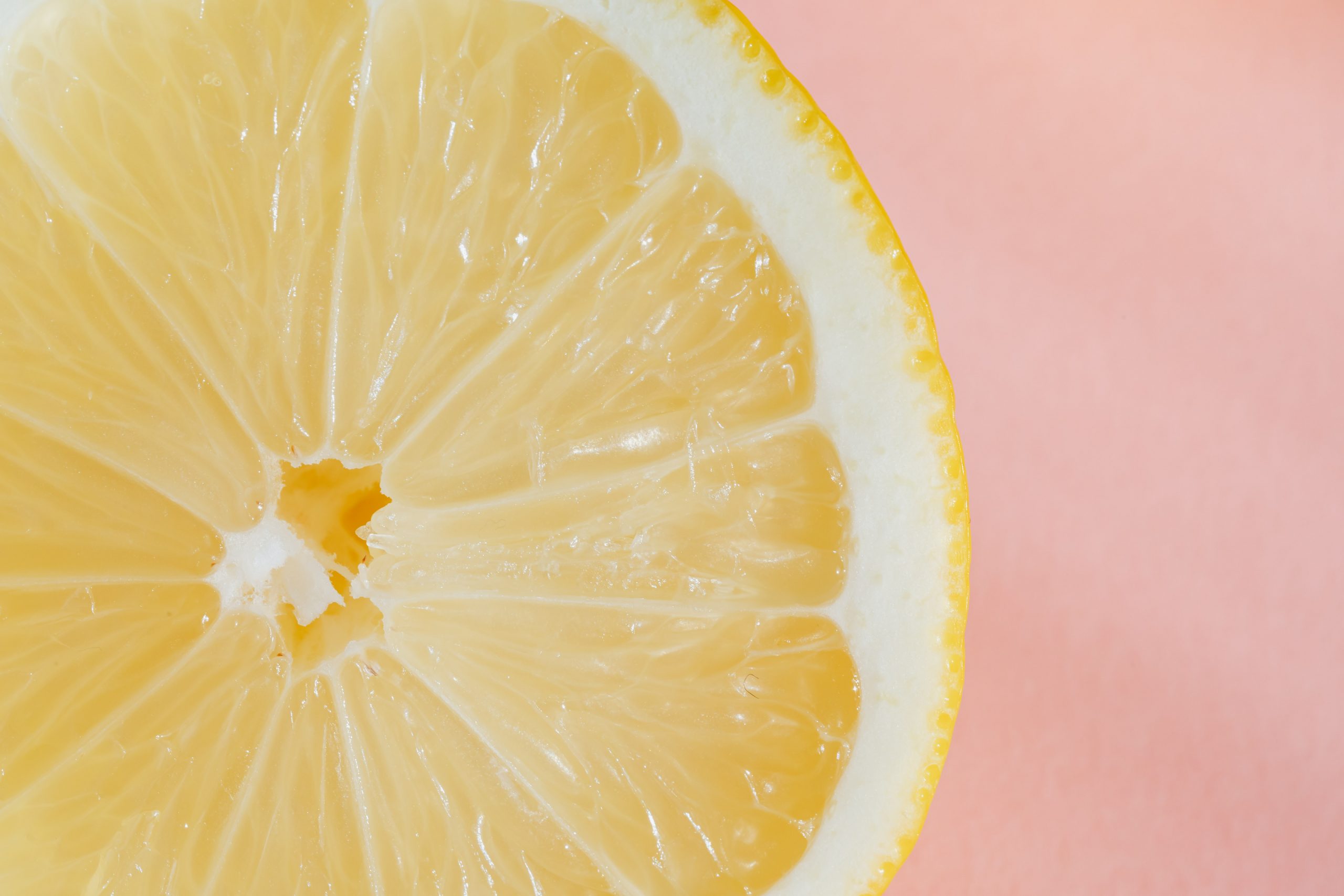
Lemon Loveliness

What is it about the scent of lemons that makes it so appealing? Regardless of the season, adding fresh lemon juice or zest to a recipe truly makes it not only delicious, but also fragrant.
Lemons are a hybrid of bitter orange and citron that first appeared in Ancient Rome via the Silk Road courtesy of the Arabs who cultivated them around 700 BC. The word “lemon” comes from the Persian word limun found in a 10th-century Arabic book on farming. The Persians were the first culture to take the hybridizing of lemons and limes Citrus latifolia seriously. Islamic gardens featured lemon and lime trees as ornamental species because of their brilliant colors and beautiful green foliage.
The citron, and later lemons, were carried to ancient Rome, where they were a rarity, prized by the wealthy for both decorative and medicinal use. Mosaics featuring both fruit date back to Rome in the first century, while the remains of carbonised lemons have been recovered from the ruins of Pompeii, destroyed by the eruption of Mount Vesuvius in 79 AD.
Symbolism
The lemon tree is a symbol of beauty and abundance. Not only does a lemon tree produce fruit, but also does so in tremendous abundance. Due to their ability to produce fruit throughout the year, one tree can produce about 600 pounds of fruit annually.
It is no surprise, it is said, that the lemon tree is a symbol that you will be blessed with a lot during your life with joy and happiness.
Lemon symbolism in art
Lemons in paintings became a symbol of luxury and a sign of wealth along with precious objects from all over the world; they were emblematic of a period of discovery, of new places and new flavours.

Prevalent in Dutch paintings in the 17th century, it was Pieter Claesz who led the fashion to have a peeled lemon in still life art as a symbolic gesture: riches accumulated through commerce and trade were merely displays of showmanship and vanities. The pleasure of excess versus the transience of life offers a parallel to the lemon: outward beauty with a lovely scent, but deceptively sour.
Still life paintings were produced by the hundreds of thousands and in 2016 American researchers calculated that a lemon appeared in over half of all Dutch works by the middle of the 17th century.
And now let’s shift from history and arts and swing into the world of gastronomy.
If you hadn’t guessed from my Lemon Sunshine cocktail recipe , I certainly have a sweet spot for all things citrus. My long-time bakery favourite: the Starbucks lemon loaf. Its rich, lemony goodness with just the right amount of sweetness has been my guilty pleasure for
years..
Given the assorted (long!) lockdowns due to the pandemic, a simple stop into my nearby SBX has become a bit of a mission over the past year. In my quest to find the perfect substitution, I think I have nailed the perfect copycat recipe. Rather than make it in a loaf pan, I choose to make it as a muffin in a loose attempt to manage my portion control. Also, if you are looking to dress up your lemon loaf or muffins whether for yourself or as a hostess gift, I simply love the bakery vibe of parchment paper liners.
If you have a penchant for lemons…thank me now.!
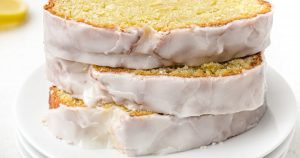
The Best Lemon Loaf Ever!
- 1 1/2 cups all-purpose flour
- 1 1/2 tsp. baking powder
- 1 Tbsp. lemon zest
- 1/2 tsp. salt
- 1/2 cup room temperature unsalted butter
- 1 cup granulated sugar
- 2 large eggs, room temperature
- 1 tsp. vanilla extract
- Juice of ½ lemon
- 1/2 cup buttermilk (if you do not have buttermilk use whole milk with 1Tbsp lemon juice and let sit for 5-10 minutes until curdled)
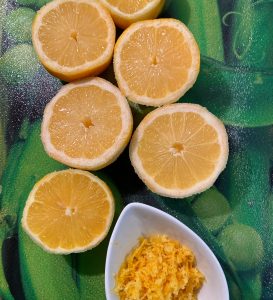
Lemon glaze
- Juice of 1 lemon (about ¼ cup)
- 3 Tbsp. icing sugar
Lemon Icing:
- 1 cup icing sugar
- Juice of ½ lemon
- 1 Tbsp. milk
INSTRUCTIONS
- 1. Preheat the oven to 350°F (177°C).
- 2. Line a loaf pan with parchment paper or use parchment muffin cups is making muffins.
- 3. Combine the flour, baking powder, lemon zest, and salt in a mid sized bowl.
- 4. In a large bowl cream the softened butter and sugar on low speed until smooth and fluffy.
- 5. With mixer at medium speed, add the eggs slowly one at a time followed by the lemon juice and vanilla extract.
- 6. Switch mixing speed to low and gradually add the flour and buttermilk ensuring it’s not over mixed.
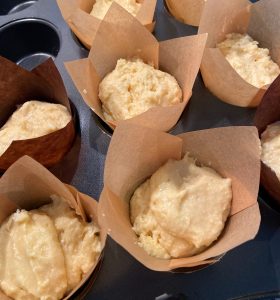
- 7. Pour into loaf pan, or muffin cups and bake loaf for 45-55 minutes or muffins 25-30 minutes. The top should be golden and a toothpick should come out clean when inserted to test.
- 8. Allow to cool for 10-15 minutes and while still warm, brush the top with the lemon glaze.
- 9. Allow to cool completely and then spread the lemon icing on top.
- 10. Let sit until the icing is completely dry…and enjoy!
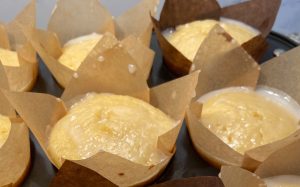
xoxo ~ Sandra
Photo Credits:
Anastasia Shuraeva
Karolina Grabowska














